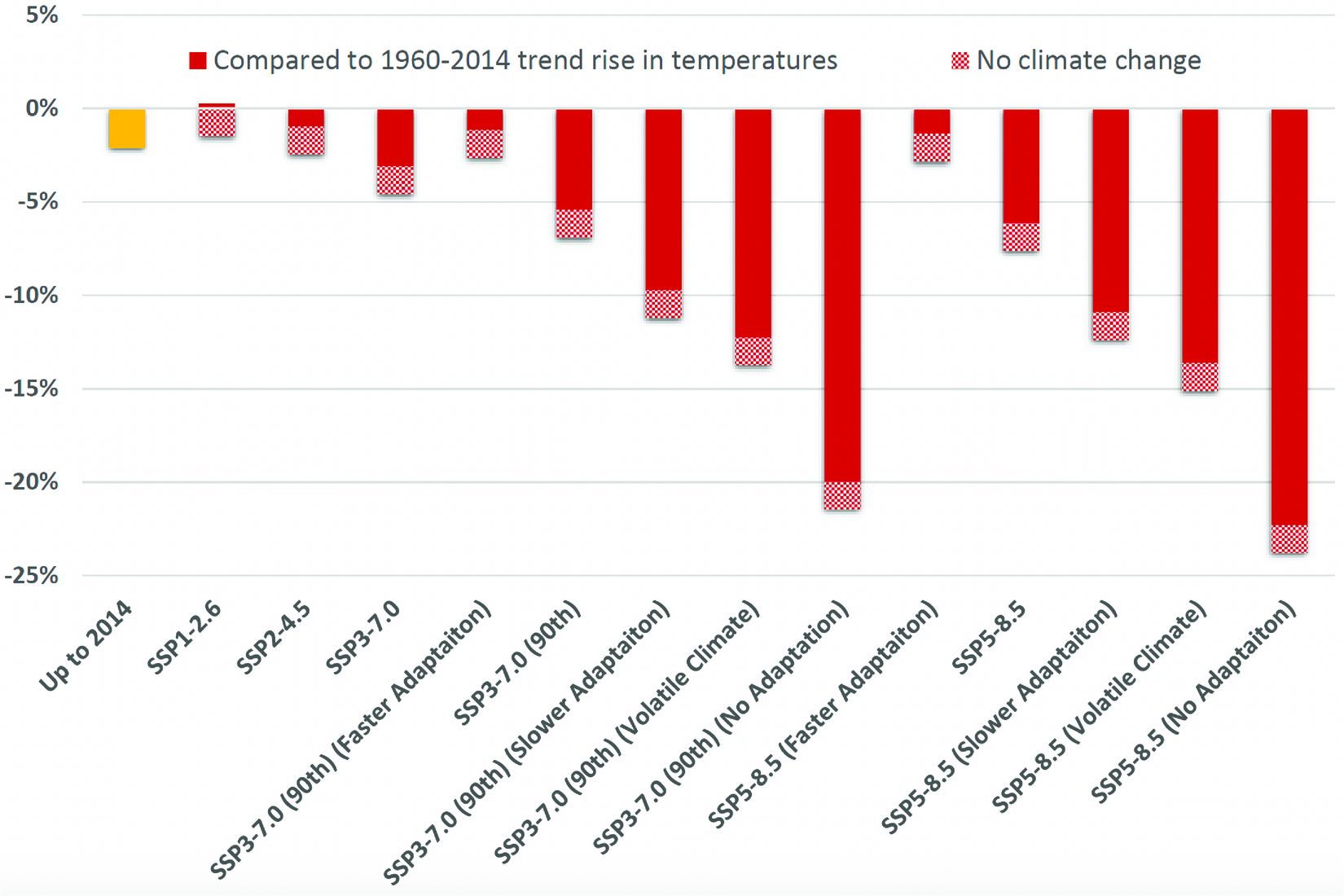Research & Developments is a blog for brief updates that provide context for the flurry of news that impacts science and scientists today.
Unchecked greenhouse gas emissions could cause the world’s income to fall by nearly a quarter within the century, projects a new study published in PLOS Climate.
“Climate change reduces income in all countries, hot and cold, rich and poor alike.”
“Climate change reduces income in all countries, hot and cold, rich and poor alike,” the study’s authors wrote in a press release.
Gross domestic product, or GDP, is the total value of goods and services produced in a given year. A country’s per-capita GDP is a measure of the average income of a person living there.
In the new study, researchers turned to information about the previously studied link between rising temperatures and GDP, along with possible scenarios of future warming, called Shared Socioeconomic Pathways. They used this data to simulate more precisely how rising temperatures might influence global GDP over time.
Their projections show warming could cause widespread economic losses as higher temperatures and climate variability impact the activities of industries including agriculture and manufacturing. But reducing greenhouse gas emissions could soften the effect, the authors write.
In a moderate emissions scenario (SSP2-4.5), global GDP decreased by about 2.5% by 2100. In a high-emissions scenario with minimal adaptation (SSP3-7.0), the projections showed global per-capita GDP dropping by up to 11%. And in a more extreme emissions scenario (SSP5-8.5) without any climate mitigation or adaptation, the researchers projected per-capita income losses of up to 24%.
Under this extreme scenario, the United States would lose nearly a third of its per-capita GDP by 2100.

The results are in line with previous research from 2024, which indicated a likely decrease in global income by 11% to 29%, depending on future emissions scenarios. However, the new study finds that if the world’s governments abide by Paris Agreement goals—that is, limiting temperature increases to 0.01°C (0.02°F) per year—global GDP could slightly increase by 0.25% by 2100.
In both the new study and previous research, low-income and hotter countries fared the worst: In the new study’s projections, countries located in hot climates and classified as low-income faced income losses between 30% and 60% of the global average.
The publication comes on the heels of a speech at the United Nations General Assembly in which President Trump called climate change the “greatest con job ever perpetrated on the world.” That denialism won’t preserve global income, according to the authors: “Urgent action is needed to address climate change and protect economies from further income losses,” they wrote.
—Grace van Deelen (@gvd.bsky.social), Staff Writer
These updates are made possible through information from the scientific community. Do you have a story about science or scientists? Send us a tip at [email protected].


